5 Black Muslim Women Whose Work You Need to Know
Community
|
Nov 19, 2020
|
7 MIN READ
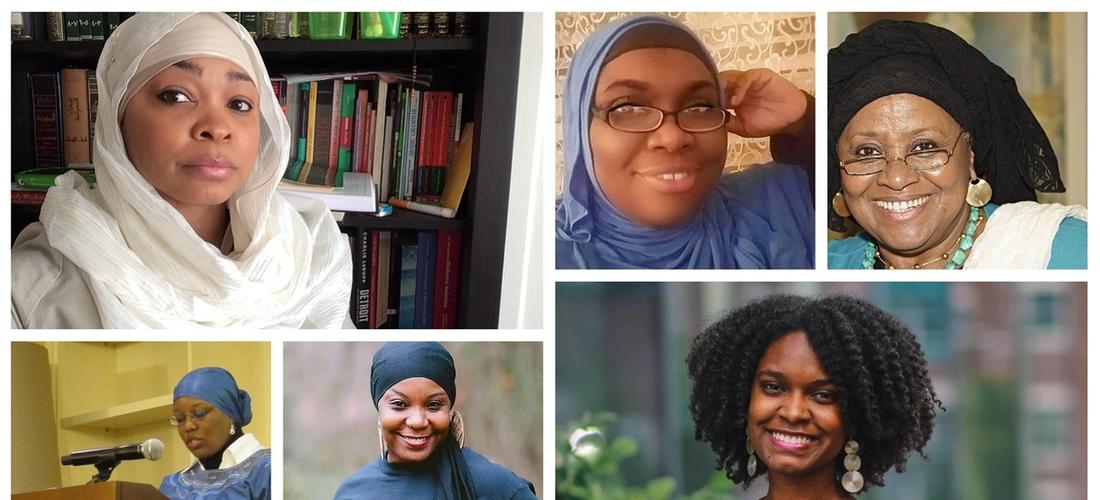
Clockwise from top left: Margari Aziza, Layla Abdullah-Poulos, Aisha Al-Adawiya, Dr. Kayla Wheeler, Dr. Kameelah Rashad, Precious Rasheeda Muhammad
In late May, our country witnessed a horrific murder as a Minnesota police officer pressed his knee down upon the neck of George Floyd to restrain him for nine minutes, while George, in growing desperation for his life, cried, “I can’t breathe,” and begged for his mother. He had been detained after a convenience store employee called 911 to say Mr. Floyd had bought cigarettes with a counterfeit $20 bill.
Seventeen minutes after the first police car arrived on the scene, pinned underneath the knee of a police officer while two others watched, Mr. Floyd died, and the country exploded amid a global pandemic over perpetual racial injustice laid bare over and over again. Thousands of daily protests happened across the country and around the world, as months of sheltering-in-place due to the COVID-19 global pandemic (which has disproportionately affected Black people) laid bare the inequities, abject racism and discriminatory policies that marginalized communities have faced for decades.
Back in June, our blog editor Dilshad wrote, “We all have to confront this – as individuals, organizations, communities and businesses, not just in what we say publicly, but what we believe and do behind closed doors. These are discussions we are having on the regular at Haute Hijab, during company hours on Slack and on Zoom and continued into the late nights on texting chains, as we listen and learn from our communities, educate ourselves and try and figure out how best to offer support and solidarity.”
Black Lives Matter is a movement that matters. Period. Systemic racial injustice has been one of the most divisive, inequitable and terrible underpinnings of this country. Supporting and sharing the voices and stories of Black Muslims on our platform has been a priority from early on, but that work must always continue and grow. We’ve been honored to feature the work of and partner with dynamic Black Muslim women, and in case you’ve missed some of these important stories and interviews, here are five fantastic women (among so many) you should know, follow and learn from.
Dr. Kameelah Rashad, Muslim Wellness Foundation, Black Muslim COVID Coalition
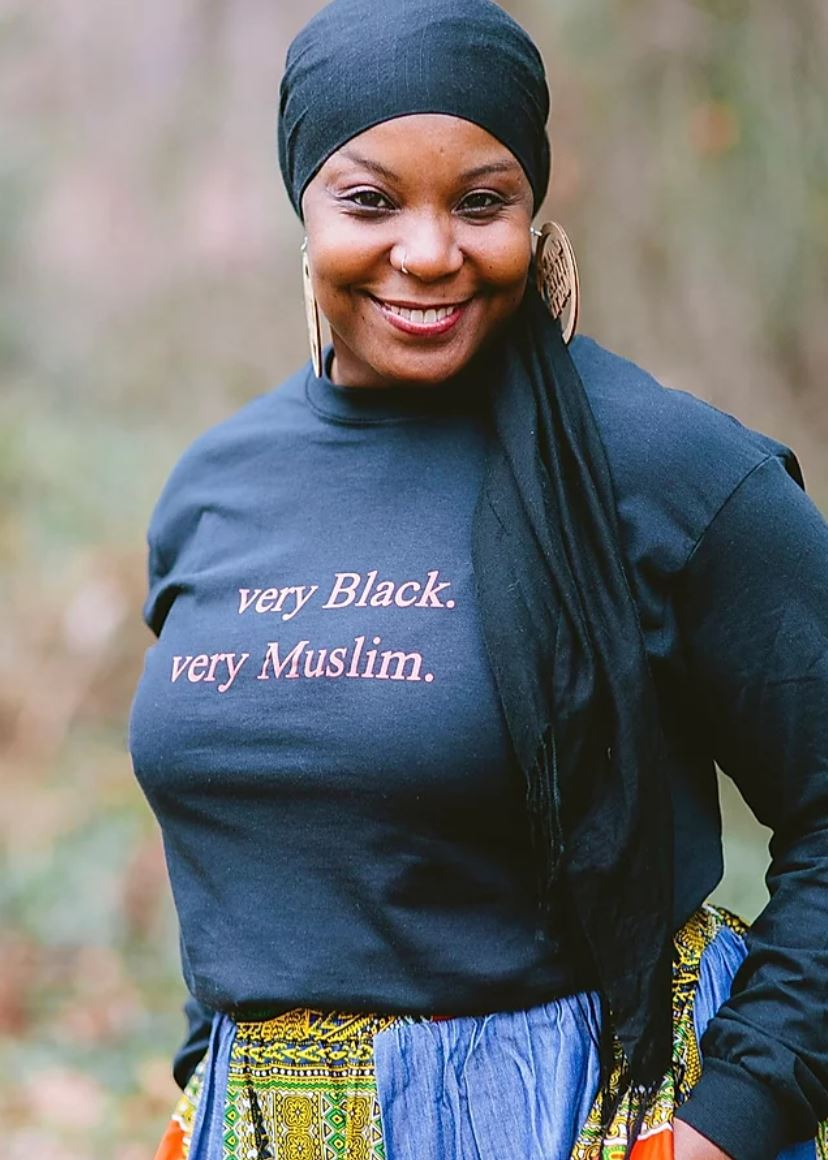
Dr. Rashad holds a Psy.D. in Clinical Psychology and multiple master’s degrees and clinical certifications. In 2013, she founded the Muslim Wellness Foundation (MWF), a mental health organization with the primary objective to reduce stigmas about mental illness, addiction and trauma and raise awareness in American Muslim communities through education. In addition to the Black Muslim Psychology Conference, Dr. Rashad organizes multiple collaborations and projects through the Muslim Wellness Foundation, including the Black Muslim COVID Coalition (BMCC) and the Wisdom of the Elders project, two initiatives that center Black Muslims and the unique social issues affecting them, reports HH’s Layla Abdullah-Poulos in this article.
In American Muslim communities, there is always this distancing from Blackness,” says Dr. Rashad in her interview with Haute Hijab. “The problem in American Muslim communities [is that]... we replicate some of the broader structures that serve to exclude Black people in general. The systems we live in predicate white superiority and black inferiority, with structures in place that reinforce that idea.
“The complicity in non-Black Muslim communities post-9/11 was to cling to this idea that we are different. We are not like those Black people who have been historically subjugated. So, let me show you how I am different and should not be treated [like them].” In focusing on how they are exceptional or different than what non-Muslims believe about Muslims, non-Black Muslims ended up making things harder for themselves and their Black Muslim sister and brothers. ... When someone uses exceptionality to prove their humanity, they’re playing into that trope. No, your life has inherent worth, you don’t have to tell an extravagant story.”
Dr. Kayla Wheeler, Educator, #BlackMuslimSyllabus
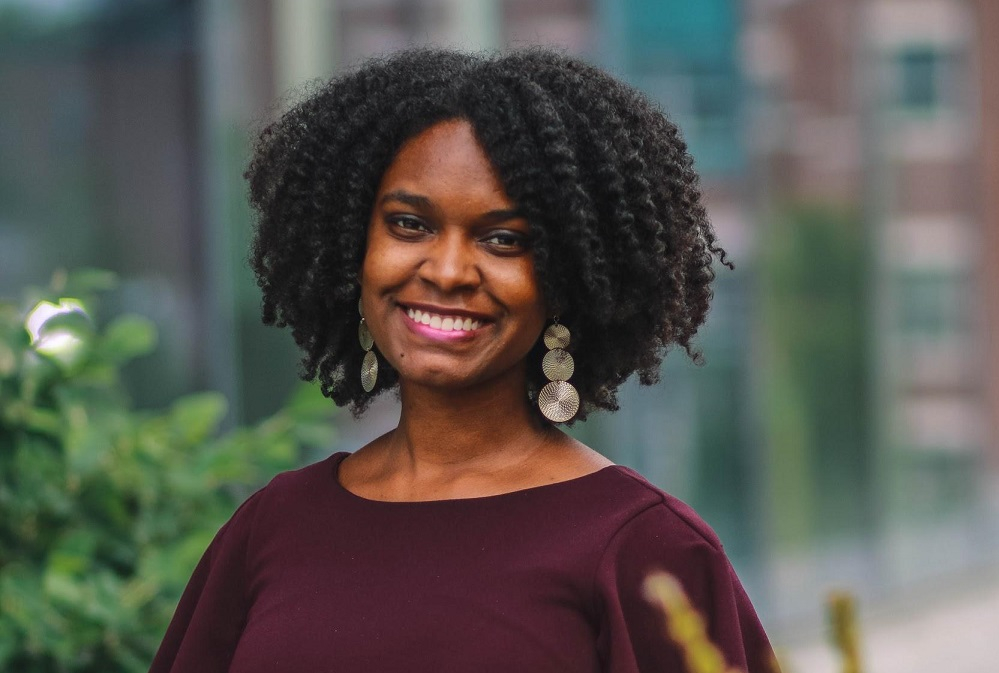
Many people inside and outside of American Muslim culture can benefit from developing a deeper appreciation of the complex Black Muslim experience, especially in how Black Muslims resist attempts to confine representation within parameters created by those seeking to pigeonhole us, writes Haute Hijab’s Layla Poulos in her interview with Assistant professor Dr. Kayla Renée Wheeler. Dr. Wheeler, who teaches at Grand Valley State University in Allendale, MI curates the #BlackIslamSyllabus, a dynamic compilation of historical, social and cultural sources serving as resources to deepen the study of Islam. “My primary motivation was to show Black Muslims how diverse the Black Muslim experience is,” Dr. Wheeler says. Secondly, it was to help address the absence of Black Muslims from classrooms.”
There are several ways that Muslim and non-Muslim academics can support the syllabus. “Academics can provide more recommendations for other sources to add to the syllabus. Written sources must be in English, but audio and visual sources can be in any language. They can donate to me and help transform the syllabus into a website, which will include a more accessible guide to the sources, a list of Black scholars of Islam, book reviews and video interviews with experts of Black Islam. The money will go towards paying writers, a video editor, interview equipment, and to compensate me for my labor,” says Dr. Wheeler.
Precious Rasheeda Muhammad, Independent Scholar, Educator, Author
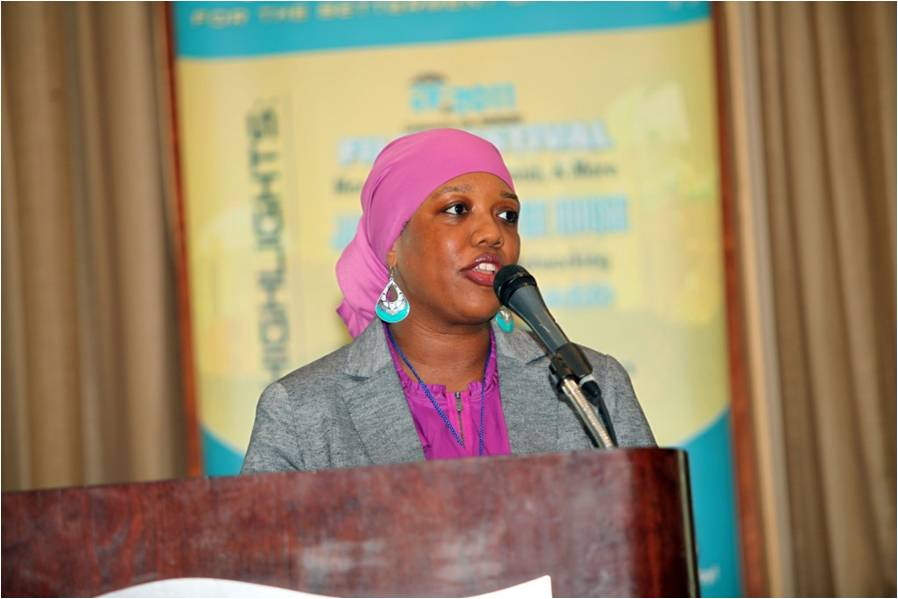
Through her writing, scholarship and work in the space of researching American history, Precious Rasheeda Muhammad has helped to promote Islam in America, social justice, racial justice, peace and so much more. She has striven to fulfill her roles in excellence by deriving lessons from her ancestors and mentors for guidance to live as the best version of herself, writes HH’s Nargis Rahman in this interview with Precious. She has chosen to make a difference, everyday, by showing up and staying true to herself. She writes about the full diversity of Islam in America and the American Muslim experience as well as her own African American experience in her personal stories. Her work has been shared in books, academic journals, on NPR, at Harvard and other universities and at the State Department.
Says Precious, “In Islam, when we enter a new situation or environment, we are required to investigate thoroughly before coming to conclusions. And even then, when we think we are fully informed, we are to stay in a “learning from one another” mode. All of us can benefit from learning more about each other. Period. In my work, I study everyone, I write about everyone. I take really deep dives into the full diversity of our collective history, and so I have a peace in me when I am engaging with others outside my own experience as a Muslim, with a very distinct African American Muslim heritage, because I can see all the through lines and connective tissues clear as day that make the specifics of all of our stories universal. We are more alike than we are different. I think understanding that could bring others more peace, too.
“That being said, if you are not learning about the African American Muslim experience, its full diversity and depth and how it is critical and foundational to your story too, you are doing it wrong.”
Margari Aziza, Educator, Trainer, Activist Muslim Anti-Racism Collaborative
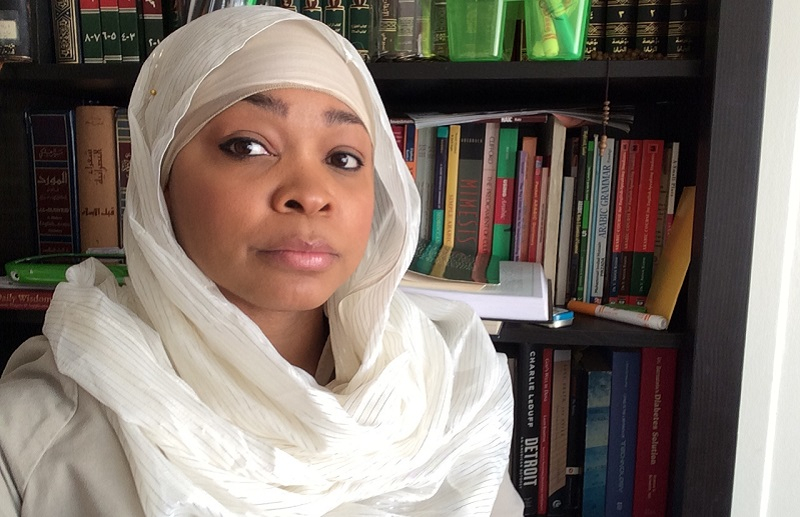
Few safe spaces reside for African American (AA) Muslim women. They frequently face layers of racism, anti-Blackness and misogynoir inside and outside of American Muslim spaces. But despite pervasive discrimination and bias, AA Muslim women continue to be major leaders in community development, education and resistance writes Layla in her interview with Margari.
Margari is the co-founder and program director of the Muslim Anti-Racism Collaborative (MuslimARC), non-profit educational organization with a primary objective to challenge white supremacy and systems of racism through the powerful influence of learning. She designs an array of curricula and workshops to expand knowledge about racism and Islamophobia in higher educational institutions and organizations.
In discussing how she knows if she is gaining success in her work, Margari says, “Success is defined by whatever it is that I learned, whatever insights I have gained, and how they are transmitted to current and emerging leaders to do better. Success in anti-racism education means that there will be a mass awakening about how systems of oppression operate, that we can imagine how to be different and begin the continual struggle for personal and collective liberation.”
Aisha Al-Adawiya, Founder, Mentor, Women in Islam, Inc.
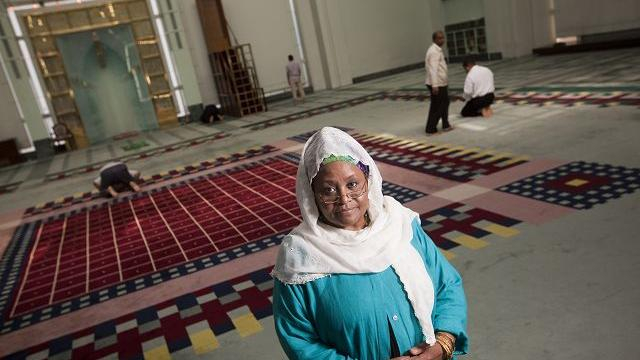
From the founding this country’s earliest Islamic schools to making inroads in science, technology, education, criminal justice and more, powerful Muslim women paved the way for our current generation of leaders, scientists, activists, educators and titans of industry. These women are the mother of movements and have helped bridge the gap between understanding Islam in America, social justice, racial justice, promoting peace and so much more. They are inspirational leaders who exemplify the meaning of living the sunnah, writes HH’s Nargis.
One such luminary is Aisha al-Adawiya, the founder of Women in Islam Inc. which was conceived in 1992 to provide a platform for Muslim women to discuss human rights and social justice. In her work with the Preservation of the Black Religious Heritage Documentation Project for the Schomburg Center for Research in Black Culture, she focuses on preserving the Islamic voice. She also serves as a consultant for interfaith organizations, and is on the board of various organizations. In her interview with Nargis, Sr. Aisha spoke about work and her passion for helping women be in all spaces to uplift communities.
Says Sr. Aisha in the interview, “I think all of us need to learn the historical significance of the experiences of African Americans and African American Muslims. That history informs and empowers all of our communities. [It] necessitates addressing very hard issues that we tend to shy away from. I like to highlight those issues that are uncomfortable so we can break through some of their barriers. We won't progress [until] if and when we do. [It's] foundational and not at all pretty, [but] liberating.”
Check out more stories like these on The Haute Take. And, we want to give our thanks to our own writers, like Layla (in the top second-from-right position on the collage of women up above) and Nargis (taking a six-month break at HH to focus on two journalism fellowships), who tirelessly pitch and write these stories and interviews.
Subscribe to be the first to know about new product releases, styling ideas and more.
What products are you interested in?

